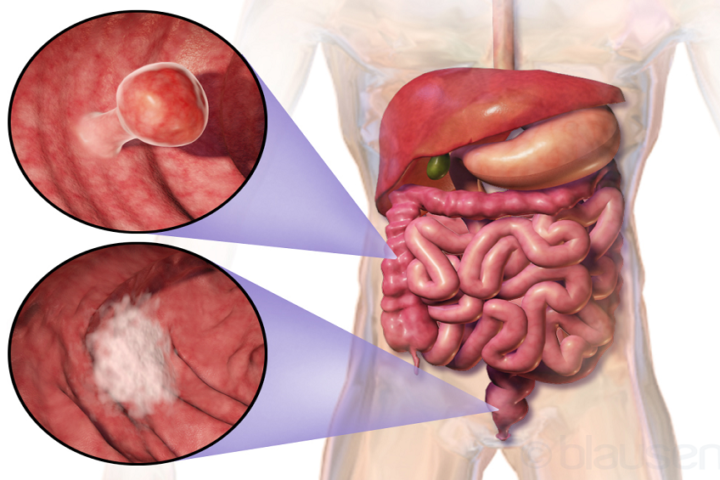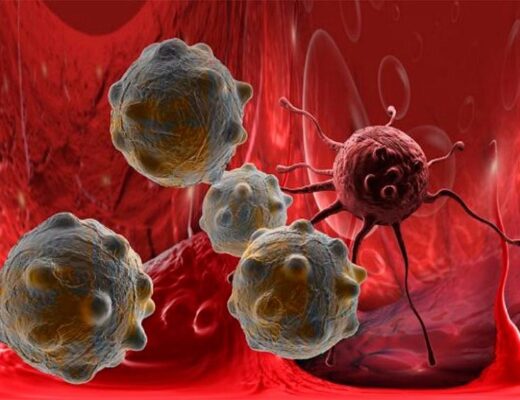Colorectal cancer is the third most common cancer in men and women. It is also one of the leading causes of death from cancer. The American Cancer Society projects that about 140,000 people will be diagnosed with colorectal cancer in 2020. There are several risk factors for colorectal cancer, including age, family history, and certain medical conditions. African Americans risk developing and dying from colorectal cancer more than other groups. That is the reason organizations like Hong Kong Cancer Fund offer support to cancer patients.
What is Colorectal cancer?
Colorectal cancer is a type of cancer that starts in the colon or rectum. The colon and rectum are part of the large intestine, also called the large bowel. Colorectal cancer is sometimes called colorectal adenocarcinoma or simply colon cancer.
Most colorectal cancers start as small, noncancerous (benign) tumors called adenomatous polyps. Over time some of these polyps can become colorectal cancers. Cancer cells can grow through the wall of the colon or rectum and spread to other organs in the body. When this happens, it is called metastatic colorectal cancer.
Types of Colorectal Cancer
The two main types of colorectal cancer are:
- Adenocarcinomas: These cancers form in the lining of the colon or rectum and are the most common type, accounting for 95% of all colorectal cancers.
- Sarcomas: These are much less common and form in the colon or rectum’s connective tissue or blood vessels.
Risk Factors for Colorectal Cancer
There are several risk factors for colorectal cancer, including age, family history, and certain medical conditions. African Americans risk developing and dying from colorectal cancer more than other groups.
- Age: The risk of colorectal cancer increases with age. More than 90% of cases are diagnosed in people 50 years or older.
- Family history: You are more likely to develop colorectal cancer if you have a first-degree relative (parent, sibling, or child) with the disease.
- Medical conditions: Certain medical conditions can increase your risk of colorectal cancer, including:
- Ulcerative colitis or Crohn’s disease: These are inflammatory bowel diseases that can damage the colon lining, increasing the risk of cancer.
- Colorectal polyps: These are growths on the lining of the colon or rectum that can become cancerous.
Symptoms of Colorectal Cancer
The most common symptom of colorectal cancer is bleeding from the rectum or blood in the stool. Other symptoms may include:
- Rectal pain: This type of pain is usually from a tumor in the rectum pressing on the anal sphincter muscle.
- Changes in bowel habits: This may include diarrhea, constipation, or a change in the consistency of the stool. Feeling that the bowel does not empty.
- Weakness or fatigue: This can signify that cancer has spread to the liver.
- Weight loss: This can signify that cancer has spread to other parts of the body.
Screening for Colorectal Cancer
Several tests can be used to screen for colorectal cancer, including:
- Colonoscopy: This test is used to look for polyps or cancer in the colon. A thin, flexible tube with a light and camera is inserted into the rectum and passed through the colon.
- Flexible sigmoidoscopy: This test is used to look for polyps or cancer in the rectum and lower part of the colon. A thin, flexible tube with a light and camera is inserted into the rectum and passed through the colon.
- Double-contrast barium enema: This test is used to look for polyps or cancer in the entire colon. A liquid containing barium is injected into the rectum and passed through the colon. X-rays are then taken to look for polyps or cancer.
- CT (computed tomography) colonography: This test looks for polyps or cancer in the entire colon. A CT scan is done of the abdomen and pelvis. Images are then created of the colon that can be viewed on a computer screen.
Treatment for Colorectal Cancer
Surgery is the most common treatment for colorectal cancer. The type of surgery depends on the stage of cancer.
- Stage 0 and Stage I: Surgery to remove cancer and a small amount of surrounding tissue are usually all that is needed. This can be done through the rectum (transanal surgery) or the abdomen (open surgery).
- Stage II: Surgery to remove cancer and a larger area of surrounding tissue is usually done through the abdomen.
- Stage III: Surgery to remove cancer and a larger area of surrounding tissue and lymph nodes are usually done through the abdomen. Radiation therapy may also be used.
- Stage IV: Surgery to remove cancer may be done, but this is often impossible. Radiation therapy and chemotherapy may be used to shrink the tumor.
Prevention of Colorectal Cancer
Several things can be done to help prevent colorectal cancer, including:
1) Eating a diet high in fruits, vegetables, and whole grains
A healthy diet can help reduce your risk of colorectal cancer. Eat plenty of fruits, vegetables, and whole grains. Limit your intake of red meat and processed meats.
2) Getting regular exercise
Exercise can help reduce your risk of colorectal cancer. Aim for at least 30 minutes of moderate exercise on most days of the week.
3) Quit smoking
If you smoke, quit. Smoking is a risk factor for colorectal cancer.
4) Having regular screening tests
Screening tests can help find polyps so they can be removed before becoming cancer. Talk to your doctor about which Hong Kong colorectal cancer screening test is proper for you and when you should have it done.
5) Taking aspirin or other anti-inflammatory drugs
Some studies have shown that taking aspirin or other anti-inflammatory drugs may help reduce the risk of colorectal cancer. Talk to your doctor about whether this is right for you.
6) Getting vaccinated against HPV
Human papillomavirus (HPV) is a virus that can cause cancer of the cervix, vulva, vagina, penis, anus, and oropharynx. The HPV vaccine can help protect against HPV-related cancers. It is recommended for both boys and girls ages 11-12.
7) Limiting alcohol consumption
Drinking alcohol increases your risk of colorectal cancer. If you drink, do so in moderation. For women, that means no more than 1 drink per day. For men, it means no more than 2 drinks per day.
Bottom line
Colorectal cancer is a preventable disease. You can reduce your risk by making lifestyle changes and getting regular Hong Kong colorectal cancer screening tests. If you are diagnosed with colorectal cancer, treatment options are available.




